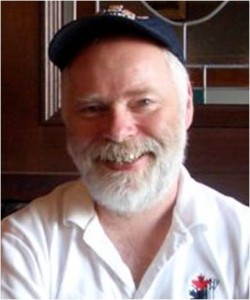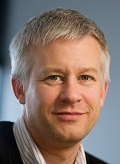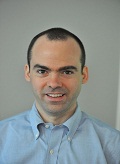Planning and Learning (PAL)
In an area such as planning, where domain independence is a central theme, learning remains an exciting approach to further driving the progress. With the Workshop on Planning and Learning, our goal is to create an open, engaging forum to discuss recent progress, new ideas and a future roadmap.
Online Proceedings (pal13-proceedings)
The PAL workshop is scheduled on the 11th of June in the A7 room at the Department of Computer, Control and Management Engineering (DIAG), University of Rome “SAPIENZA”.
|
09:00-09:05 |
Welcome Remarks |
|
09:05-10:30 |
Invited Talk Learning in Planning and Search Rob Holte
|
|
10:30-11:00 |
Coffee Break |
|
11:00-12:30 |
David Silver, Richard S. Sutton, and Martin Mueller Temporal-difference search in computer Go Jesús Virseda, Vidal Alcázar and Daniel Borrajo Learning heuristic functions for cost-based planningSergio Jimenez, Patrik Haslum and Sylvie Thiebaux Pruning bad quality causal links in sequential satisfying planning |
|
12:50-14:30 |
Lunch Break |
|
14:30-16:00 |
Erez Karpas and Carmel Domshlak Optimal Planning and Shortcut Learning: An Unfulfilled PromiseHilbert J. Kappen, VicençGómez, and Manfred Opper Optimal control as a graphical model inference problemKira Mourao and Ron Petrick Learning knowledge-level domain dynamics |
|
Coffee Break |
|
|
16:30-18:00 |
Daniel J. Lizotte, Michael Bowling, Susan A. Murphy Linear fitted-Q iteration with multiple reward functionsJohnathan Gohde, Mark Boddy and Hazel Shackleton Learning from Previous Execution to Improve Route PlanningIsabel Cenamor, Tomás de La Rosa and Fernando Fernandez Learning Predictive Models to Configure Planning Portfolios |
Invited Talk: “Learning in Planning and Search”
Speaker: Robert Holte
Slides: ICAPS2013-PALInvitedLecture
Abstract:
This presentation will begin with a survey of applications of machine learning to planning and search from the earliest days of Artificial Intelligence to the present. It will then focus in on one particular application, namely, the use of machine learning to create search heuristics. A recurring theme will the issue of training data — how are the training instances generated and how are they given labels? Two different methods for learning search heuristics by the presenter (Bootstrap and BiSS-h) will be discussed in detail.

Professor Robert Holte of the Computing Science Department at the University of Alberta is a well-known
member of the international machine learning research community, former editor-in-chief of a leading international journal in this area (“Machine Learning”), and co-founder and former director of the world-renowned Alberta Ingenuity Centre for Machine Learning (AICML). In addition to machine learning he undertakes research in single-agent heuristic search, primarily focusing on the use of automatic abstraction techniques to speed up search, methods for predicting the run-time of a search algorithm given a particular heuristic, and the use of machine learning to create heuristics. His main scientific contributions are his seminal works on the performance of very simple classification rules, the “cost curve” method for evaluating classifiers when misclassification costs or the class distribution are unknown, several key advances in single-agent search, and his contributions to the Computer Poker Research Group at the University of Alberta. He has approximately 100 scientific papers to his credit, covering both pure and applied research, and has served on the steering committee or program committee of numerous major international Artificial Intelligence conferences. Professor Holte was elected a Fellow of the AAAI in 2011.
List of Accepted Papers
- Erez Karpas and Carmel Domshlak
Optimal Planning and Shortcut Learning: An Unfulfilled Promise - Jesús Virseda, Vidal Alcázar and Daniel Borrajo
Learning heuristic functions for cost-based planning - Isabel Cenamor, Tomás de la Rosa, and Fernando Fernández
Learning Predictive Models to Configure Planning Portfolios - Kira Mourao and Ronald P. A. Petrick
Learning knowledge-level domain dynamics - Johnathan Gohde, Mark Boddy and Hazel Shackleton
Learning from Previous Execution to Improve Route Planning - Sergio Jiménez Celorrio, Patrik Haslum and Sylvie Thiebaux
Pruning bad quality causal links in sequential satisfying planning - Hilbert J. Kappen, Vicenç Gómez, and Manfred Opper
Optimal control as a graphical model inference problem - Daniel J. Lizotte, Michael Bowling, Susan A. Murphy
Linear fitted-Q iteration with multiple reward functions - David Silver, Richard S. Sutton, and Martin Mueller
Temporal-difference search in computer Go
Call for papers
Topics and Objectives
Research in domain-independent planning aims to produce model-based solvers able to address different classes of problems. Great progress has been made in the field, leading to successful techniques such as domain-independent heuristics, landmarks analysis or useful compilations of planning tasks.
Nevertheless, despite the generality and elegance of current planners, their performance is conditioned by the amount of expert knowledge invested in the specification of their models.
Planners using domain-specific knowledge tend to outperform general domain-independent planners. However, specifying good parameter configurations or effective search guidance knowledge is a challenging task. So is the task of creating input problem formulations that are correct, complete, and allow an efficient search process. In real world applications, planning actions may result in multiple outcomes, the perception of the state of the environment may be partial and/or the goals of the planning task may not be completely defined.
Machine learning is a useful tool to enhance the performance of planners and to address the model acquisition bottleneck. This workshop aims to provide a forum for discussing issues surrounding the use of learning techniques in planning, continuing the lineage of the events held at ICAPS in 2007, 2009 and 2011. The topics that will be covered include, but are not limited to:
- Offline and online approaches to learning planning search guidance
- Approaches to learning planning models and to planning with the learned models
- Representation of learned knowledge – control rules, heuristics, macro-actions, hierarchies,…
- Automatic configuration of portfolio-based and auto-tuned planners
- Machine learning for activity/plan/goal recognition
- The impact of problems sets on what can be learned
- Future challenges and roadmap for the Learning Part of the IPC
We invite contributions from researchers who have considered the application of learning to planning. We also welcome theoretical contributions considering the expressive power and/or limitations of various forms of learned knowledge representation.
Submissions
Paper submissions should be made through the workshop EasyChair web site https://www.easychair.org/conferences/?conf=icapswpal2013
Paper submission is in PDF only. Please format submissions in AAAI style. Refer to the author instructions on the AAAI web site for detailed formatting instructions and LaTeX style files (http://www.aaai.org/Publications/Author/author.php). Final papers will be in the same format, keep them to at most 8+1 pages long (meaning 8 pages plus 1 extra page containing only references). Please note that all submitted papers will be peer-reviewed, and that low-quality or off-topic papers will not be accepted. Also note that all workshop participants must register for the main ICAPS 2013 conference and that at least one author of each accepted paper must attend the workshop.
Deadlines
Paper Submission (extended): April 4th, 2013
Notification: April 19th, 2013
Final version: April 30th, 2013
Workshop: June 11th, 2013
Workshop Program Chairs
- Sergio Jiménez Celorrio, University Carlos III, Spain
sjimenez@inf.uc3m.es - Adi Botea, IBM Research, Ireland
adibotea@ie.ibm.com - Erez Karpas, Technion – Israel Institute of Technology, Israel
karpase@technion.ac.il
Program Committee
- Amanda Coles, King’s College London, UK
- Andrew Coles, King’s College London, UK
- Alan Fern, Oregon State University, USA
- Raquel Fuentetaja, Universidad Carlos III de Madrid, SPAIN
- Alfonso Gerevini, University of Brescia, ITALY
- Robert Givan, Purdue University, USA
- Shaul Markovitch, Technion – Israel Institute of Technology, ISRAEL
- Lee Mccluskey, University of Huddersfield, UK
- Ioannis Refanidis, University of Macedonia, GREECE
- Tomás de la Rosa, Universidad Carlos III de Madrid, SPAIN
- Scott Sanner, NICTA and ANU, AUSTRALIA
- Ivan Serina, Free University of Bozen-Bolzano, ITALY
- Prasad Tadepalli, Oregon State University, USA
- Sungwook Yoon, PARC, USA






